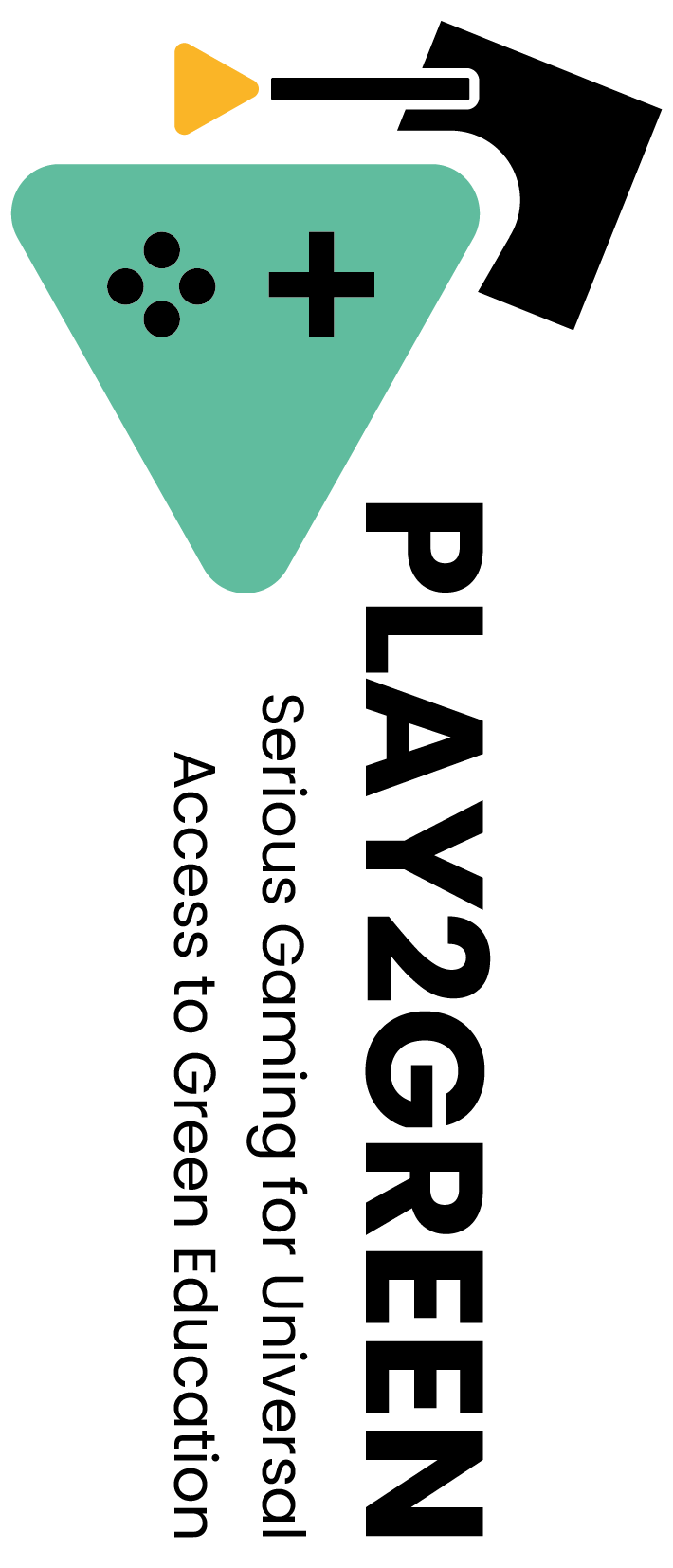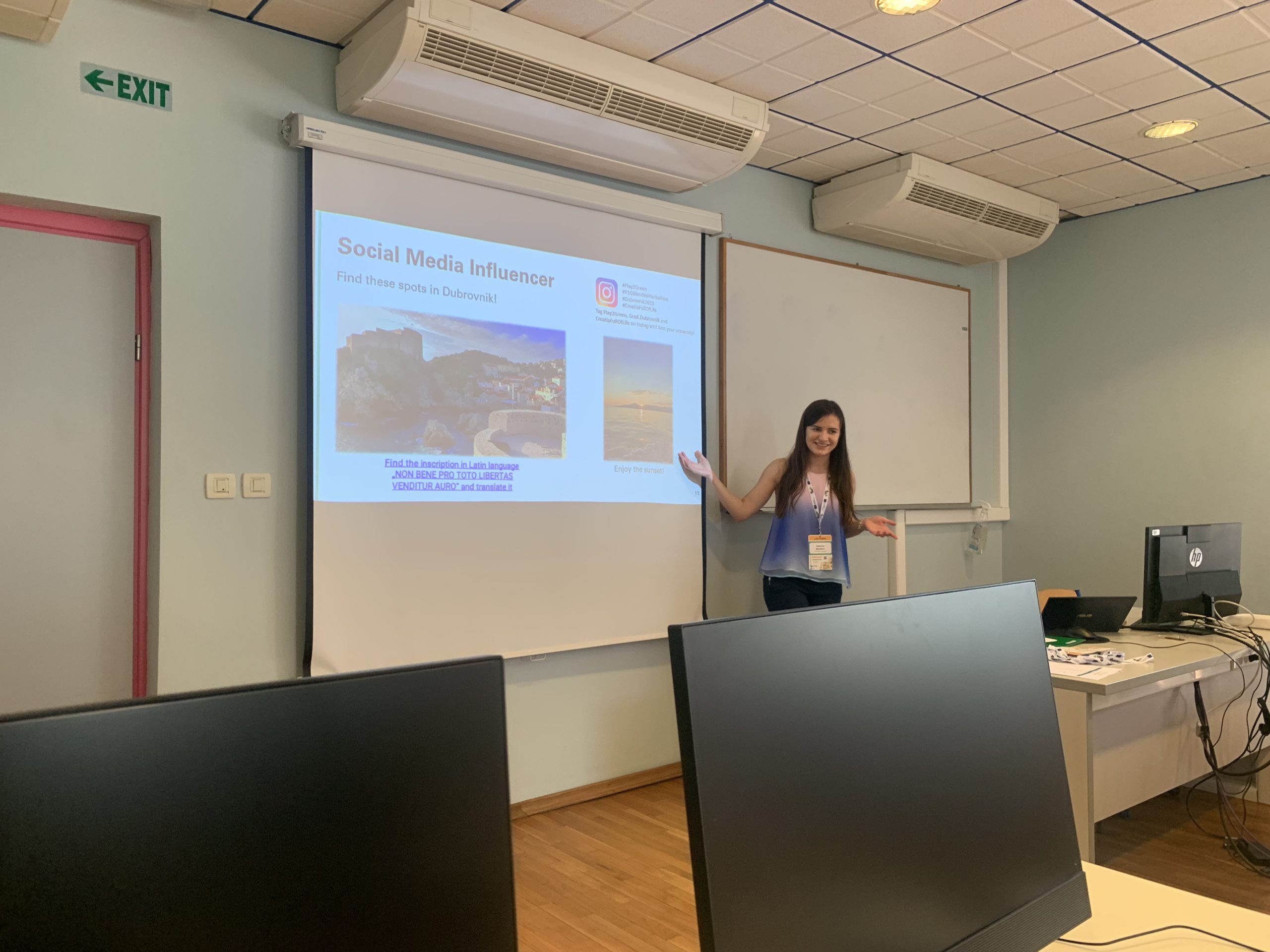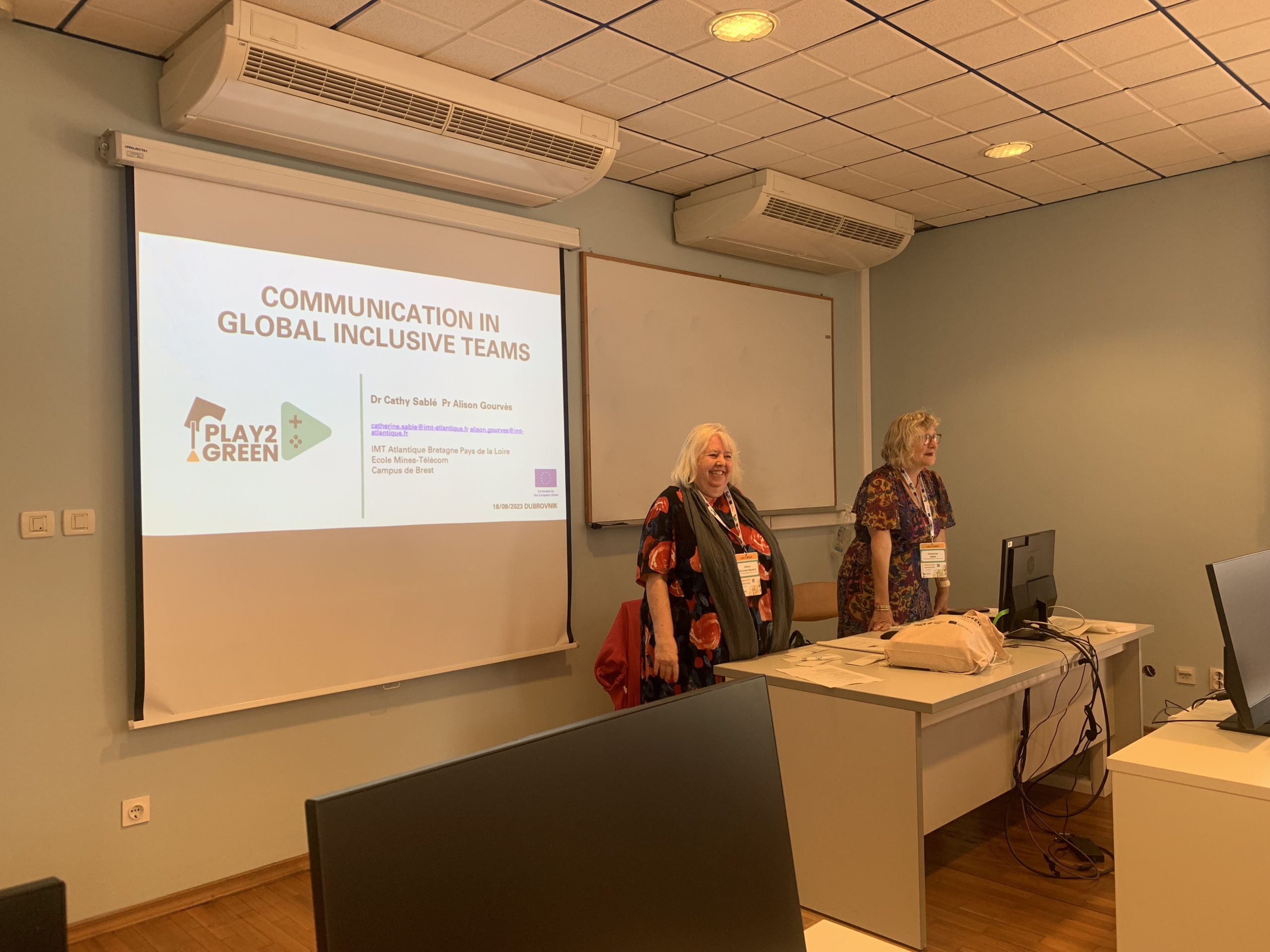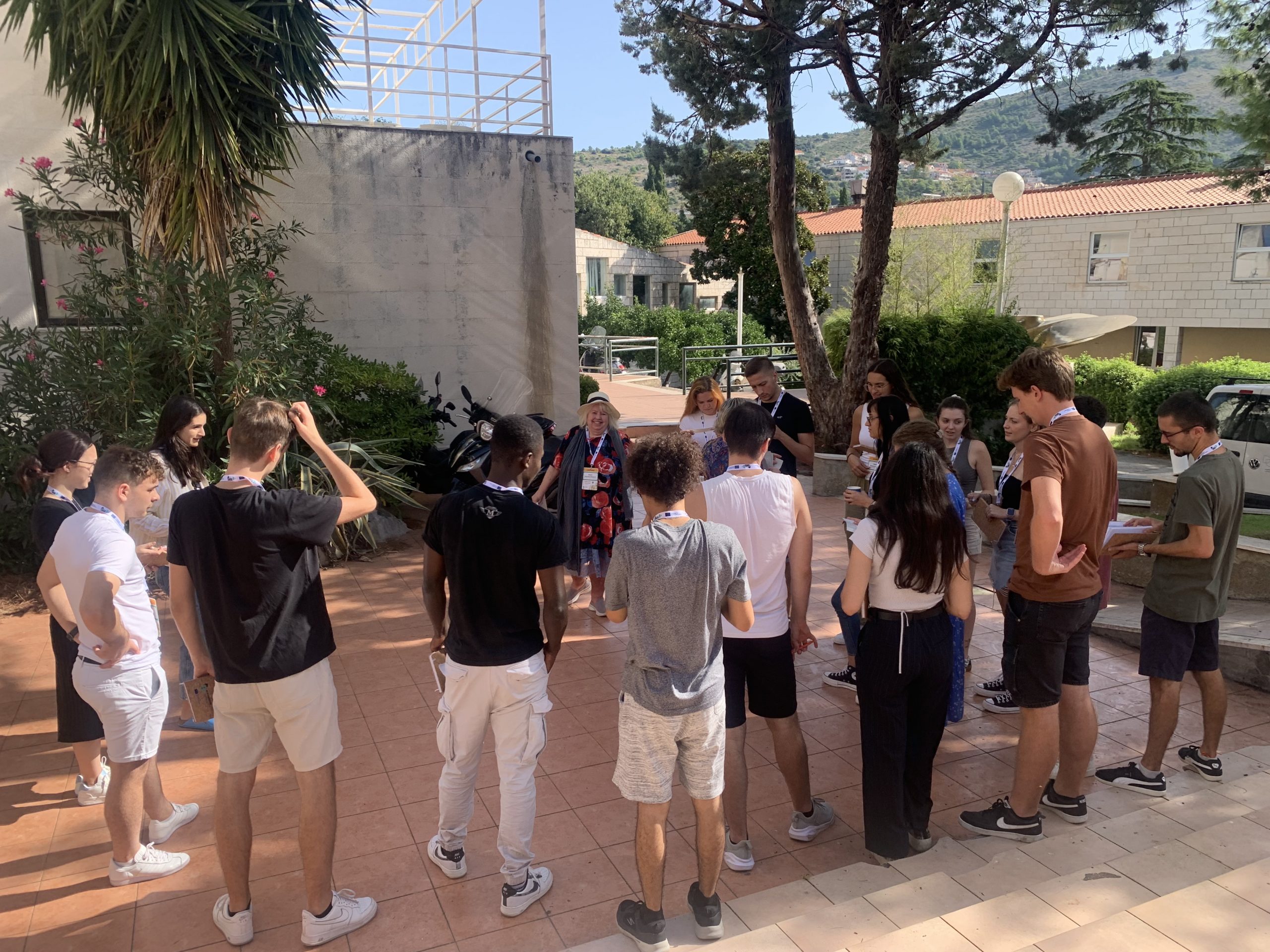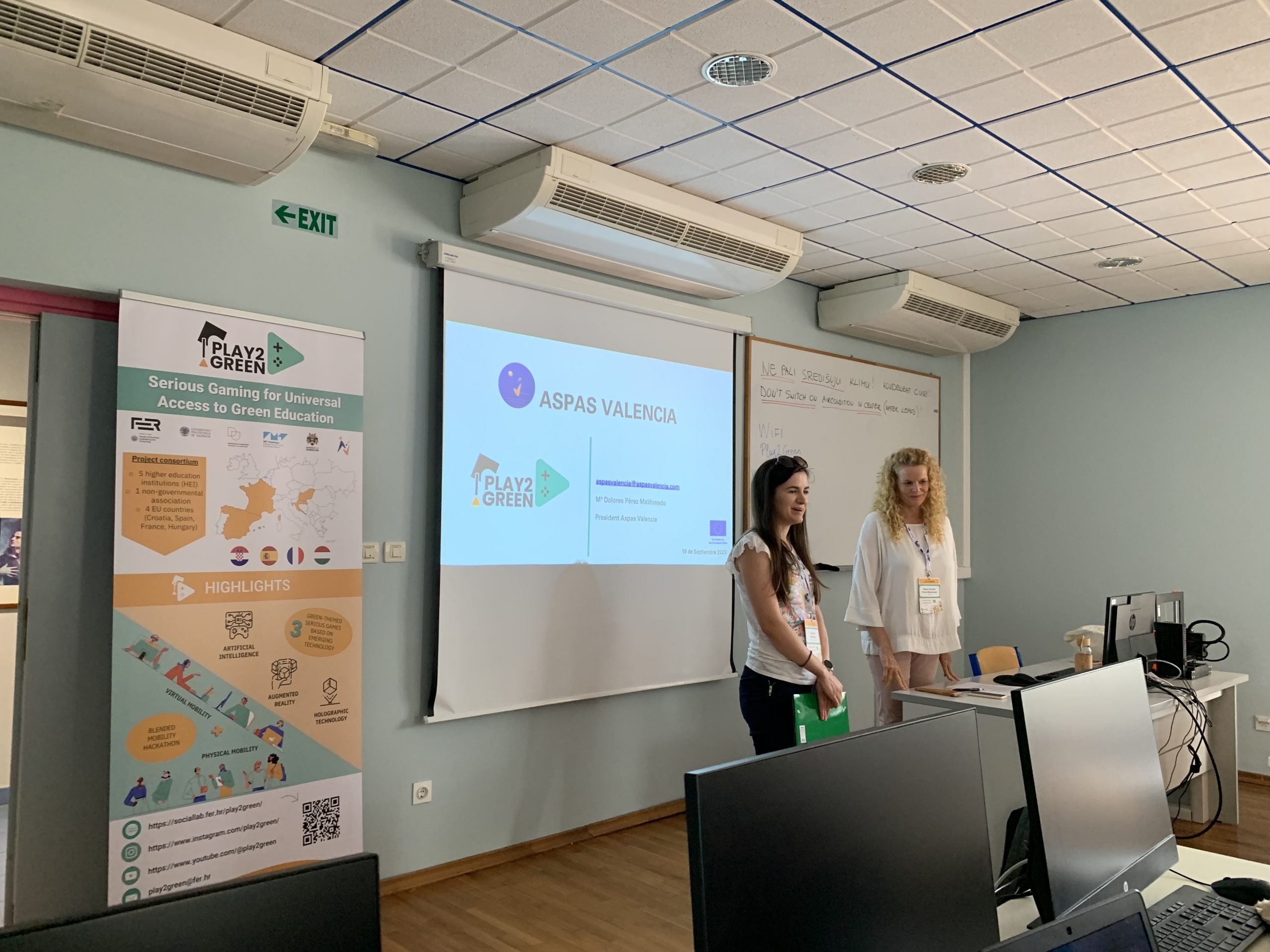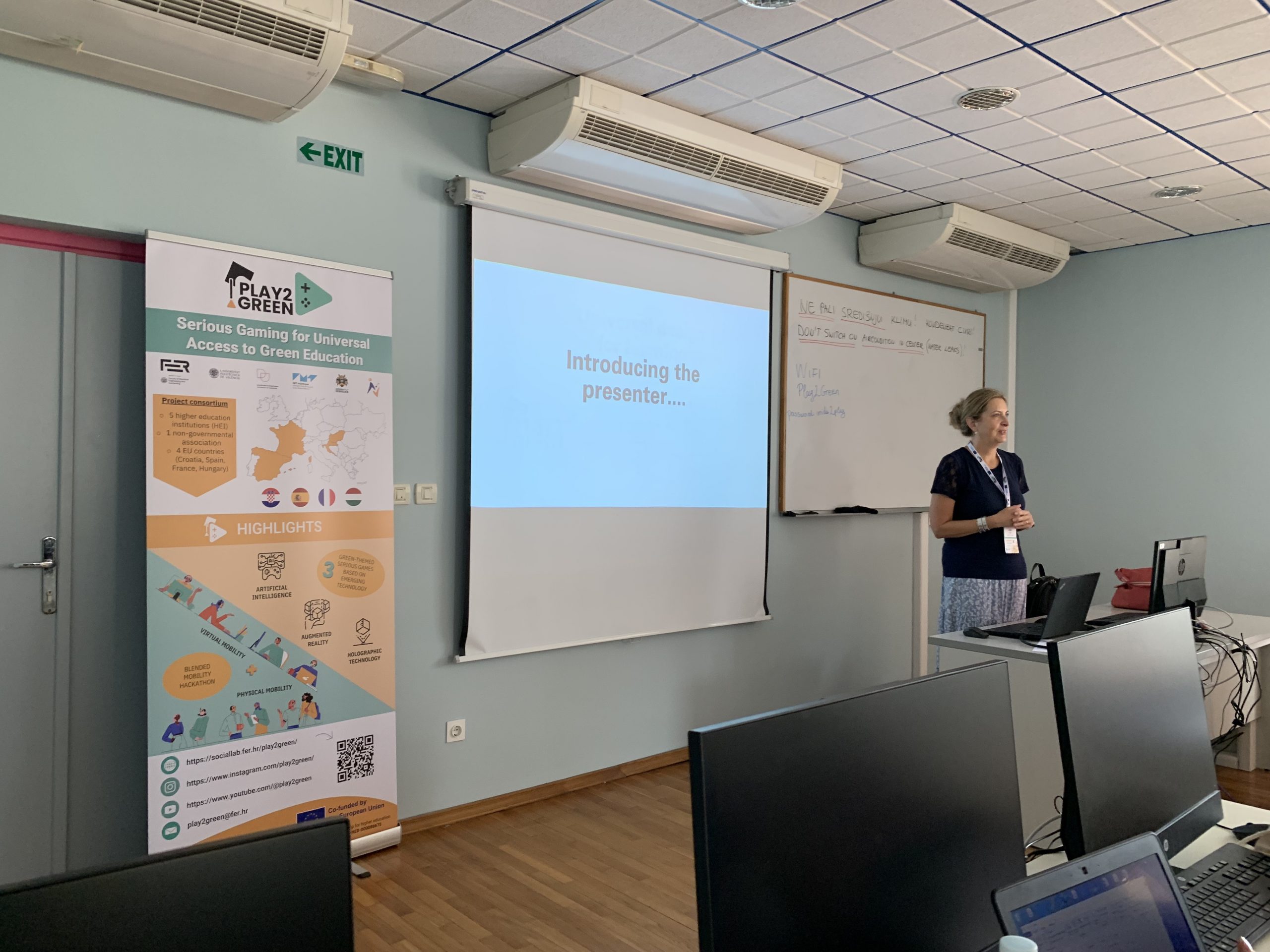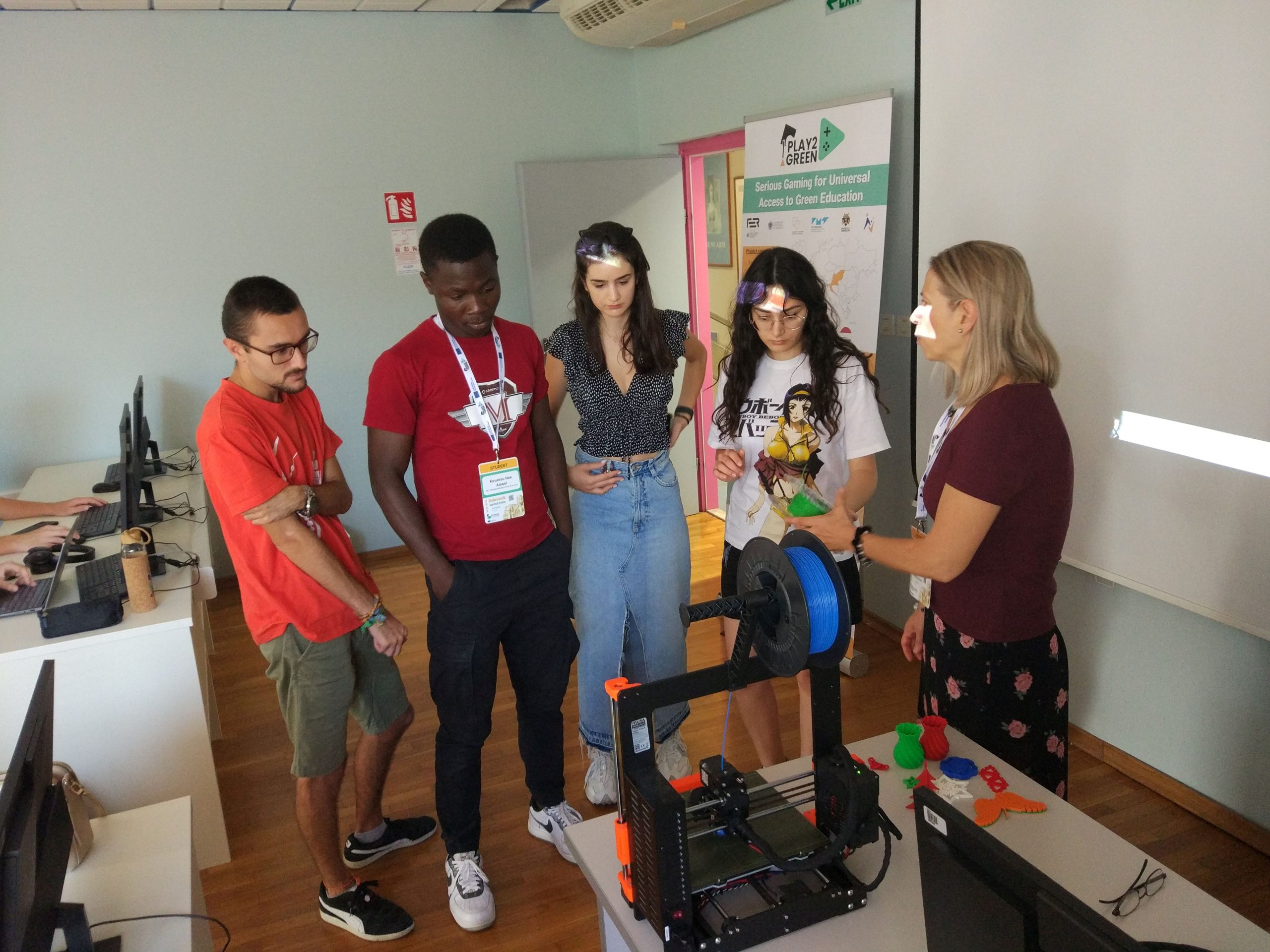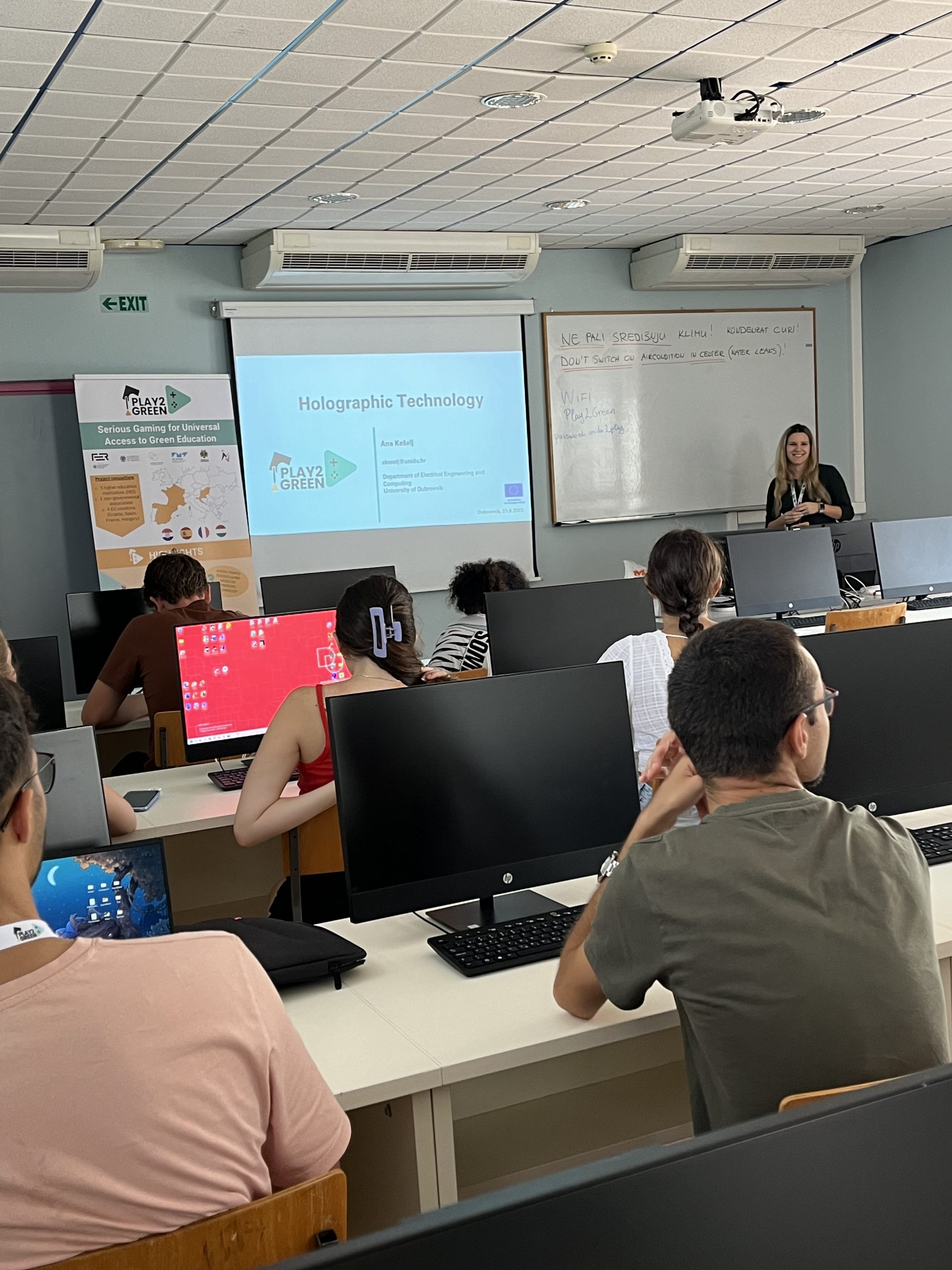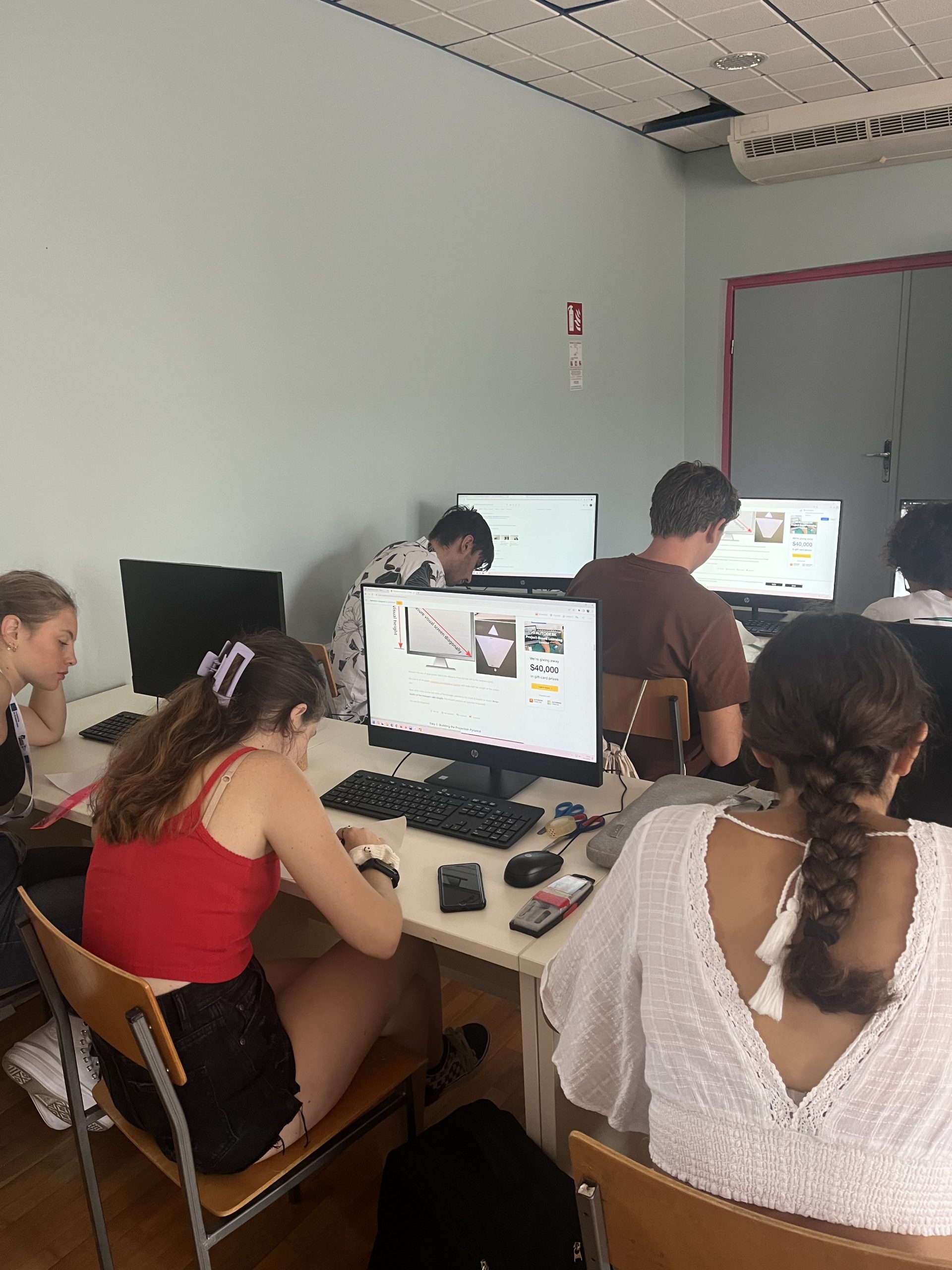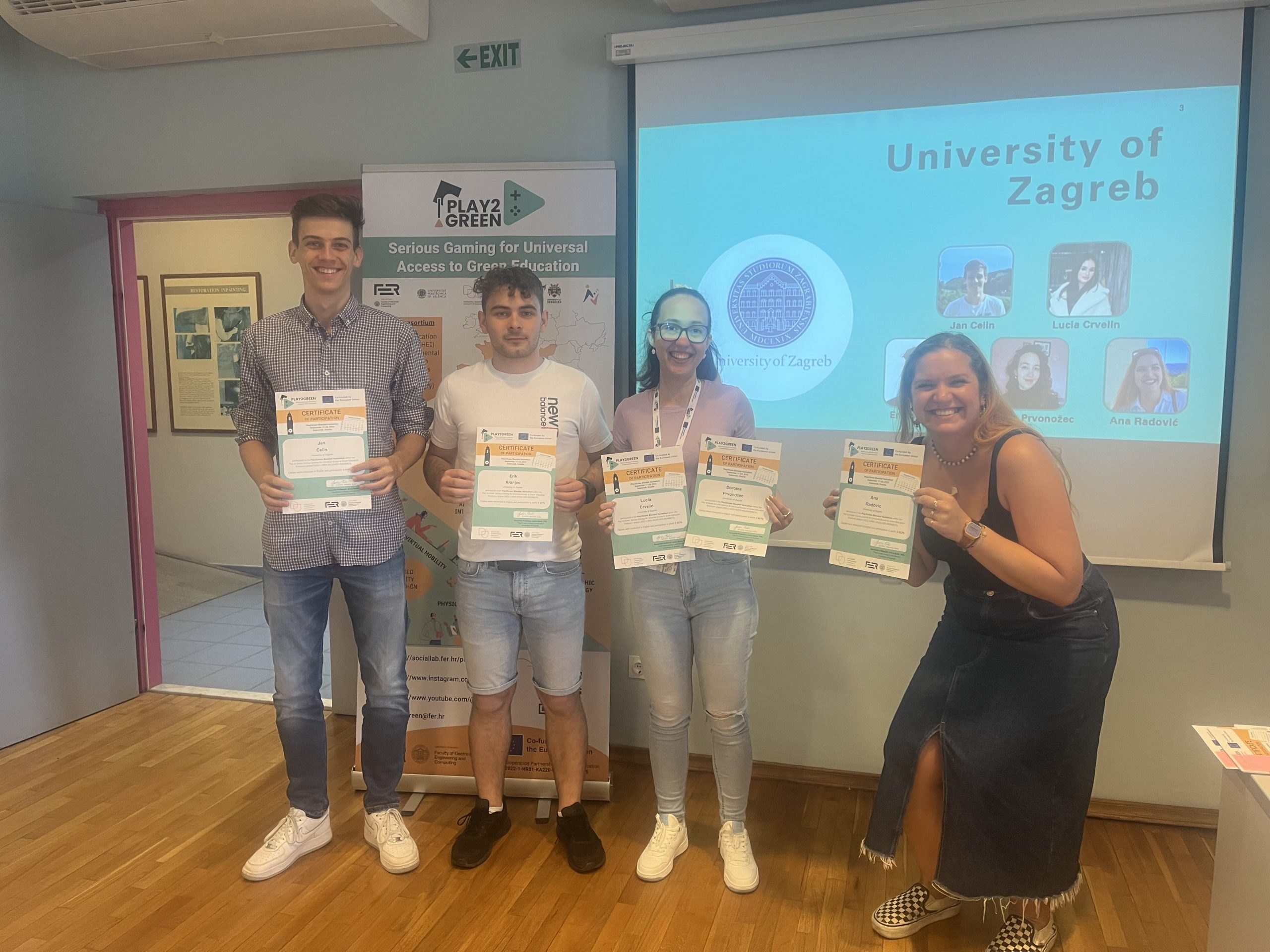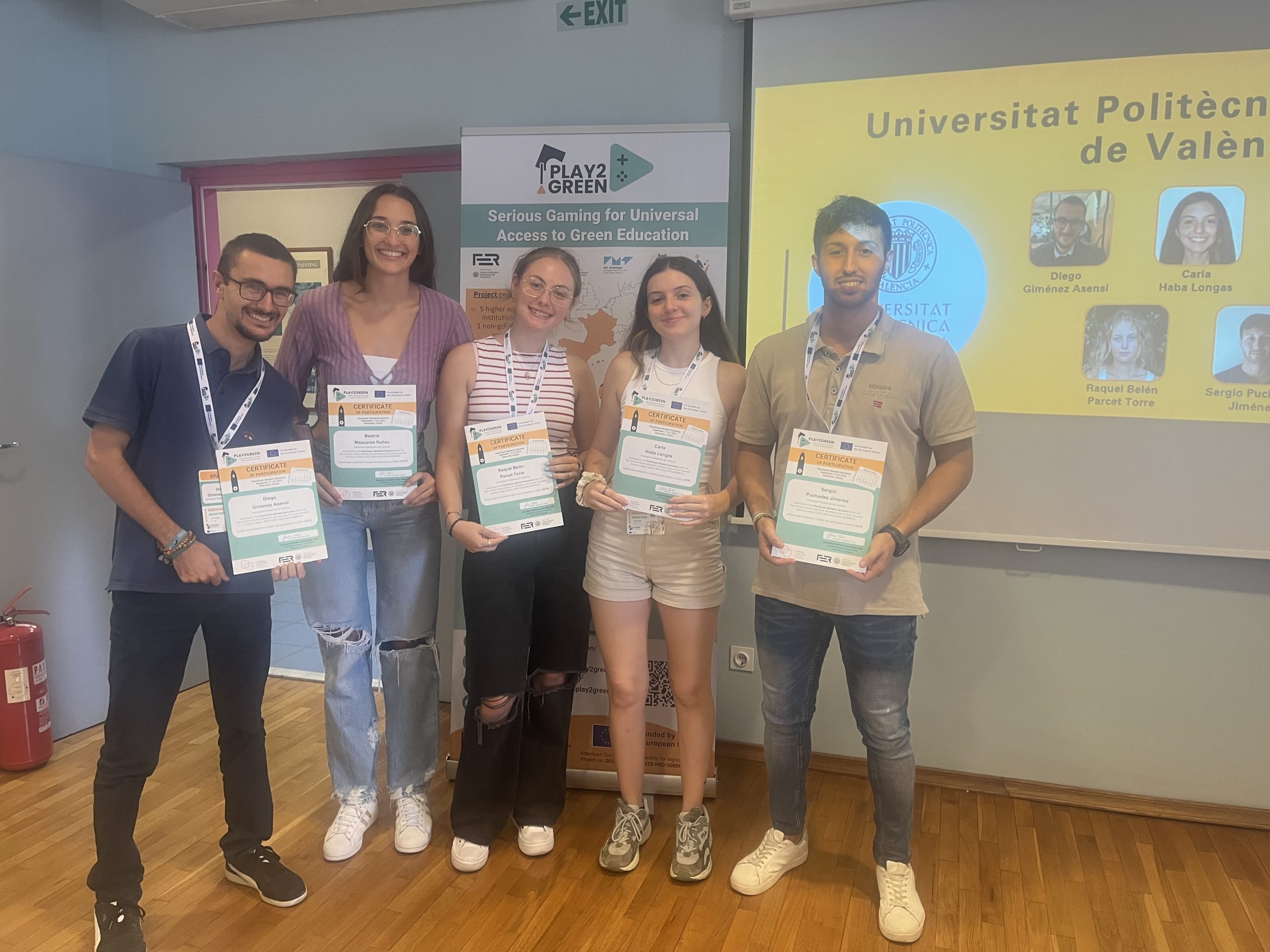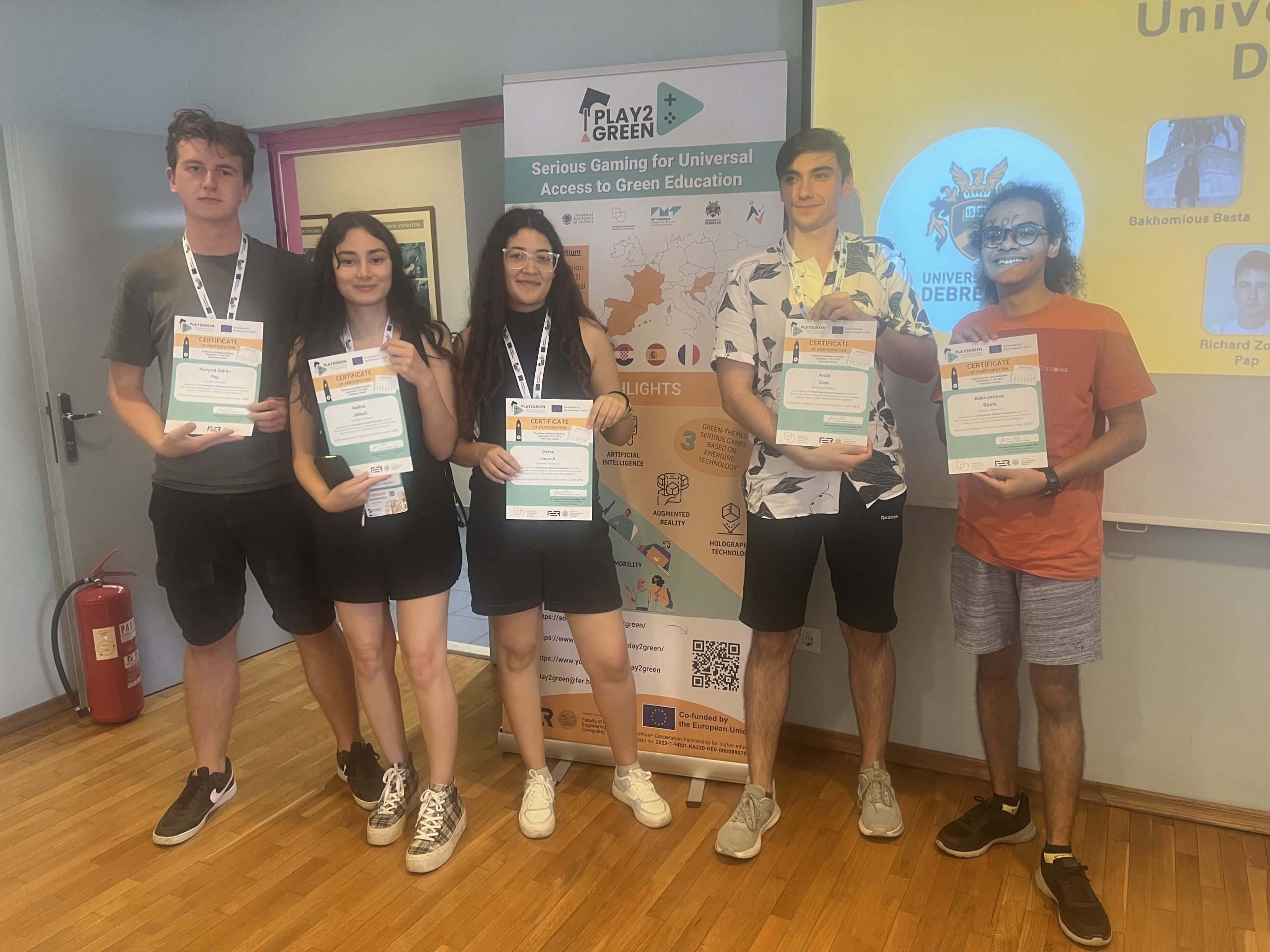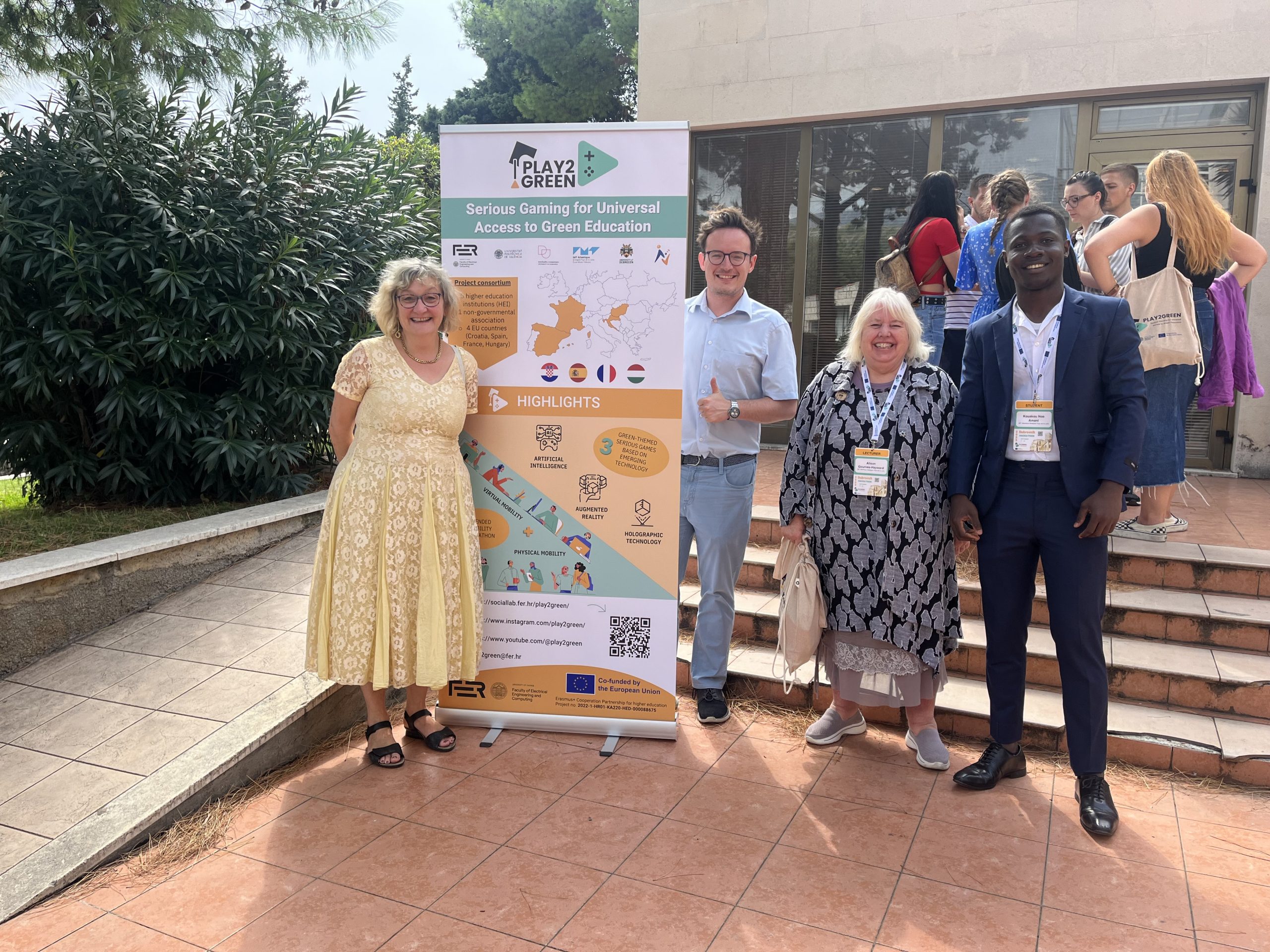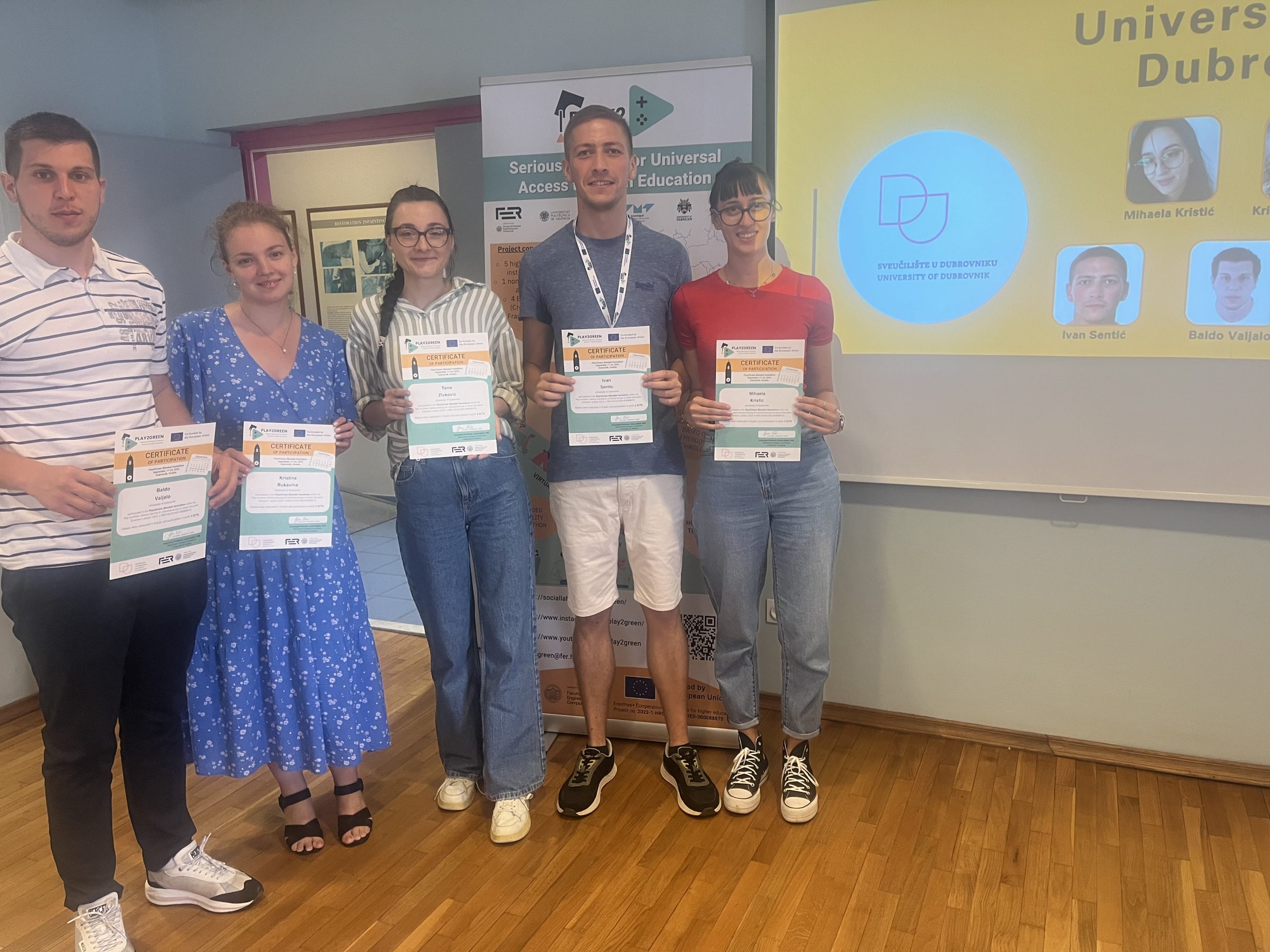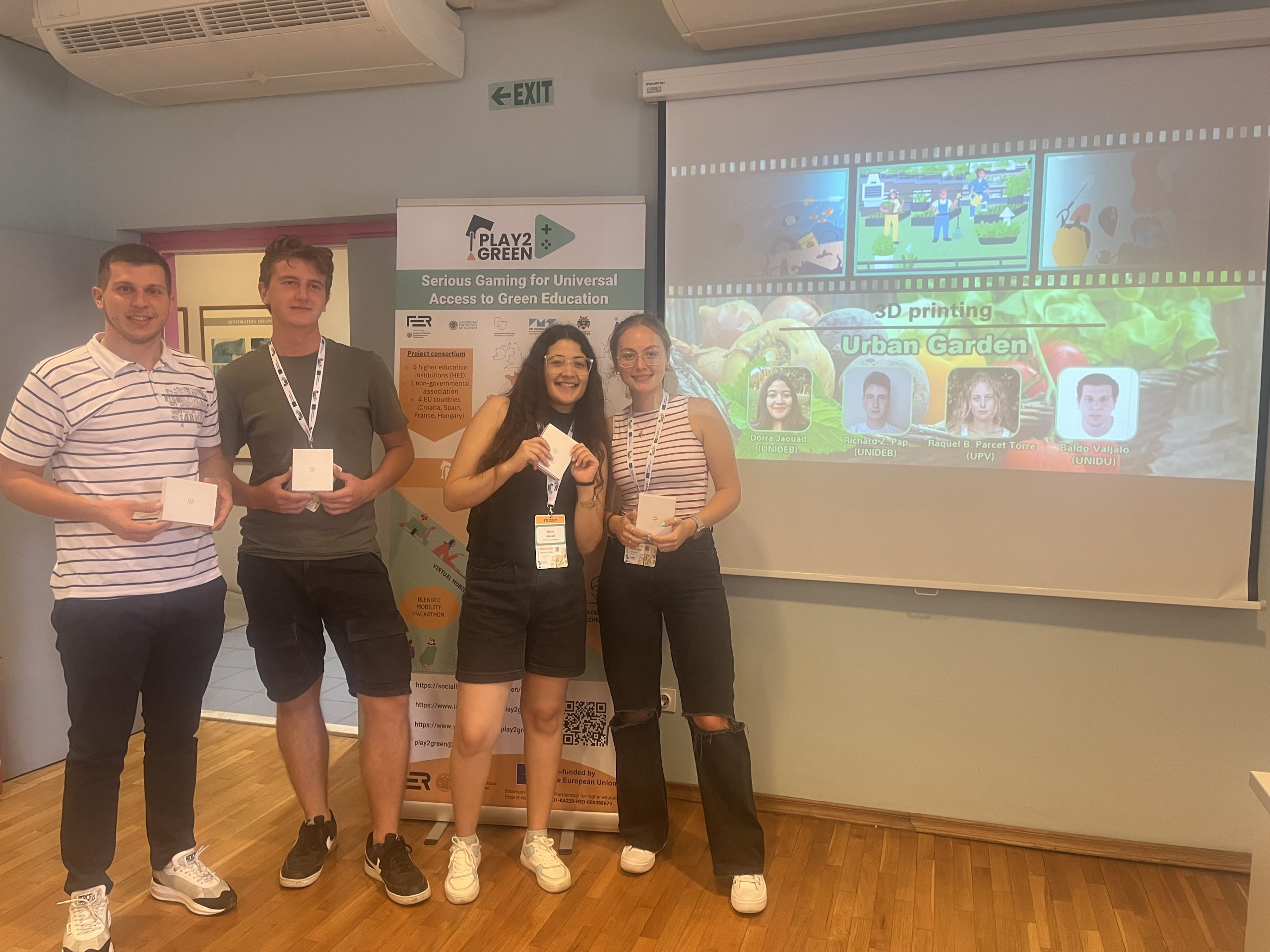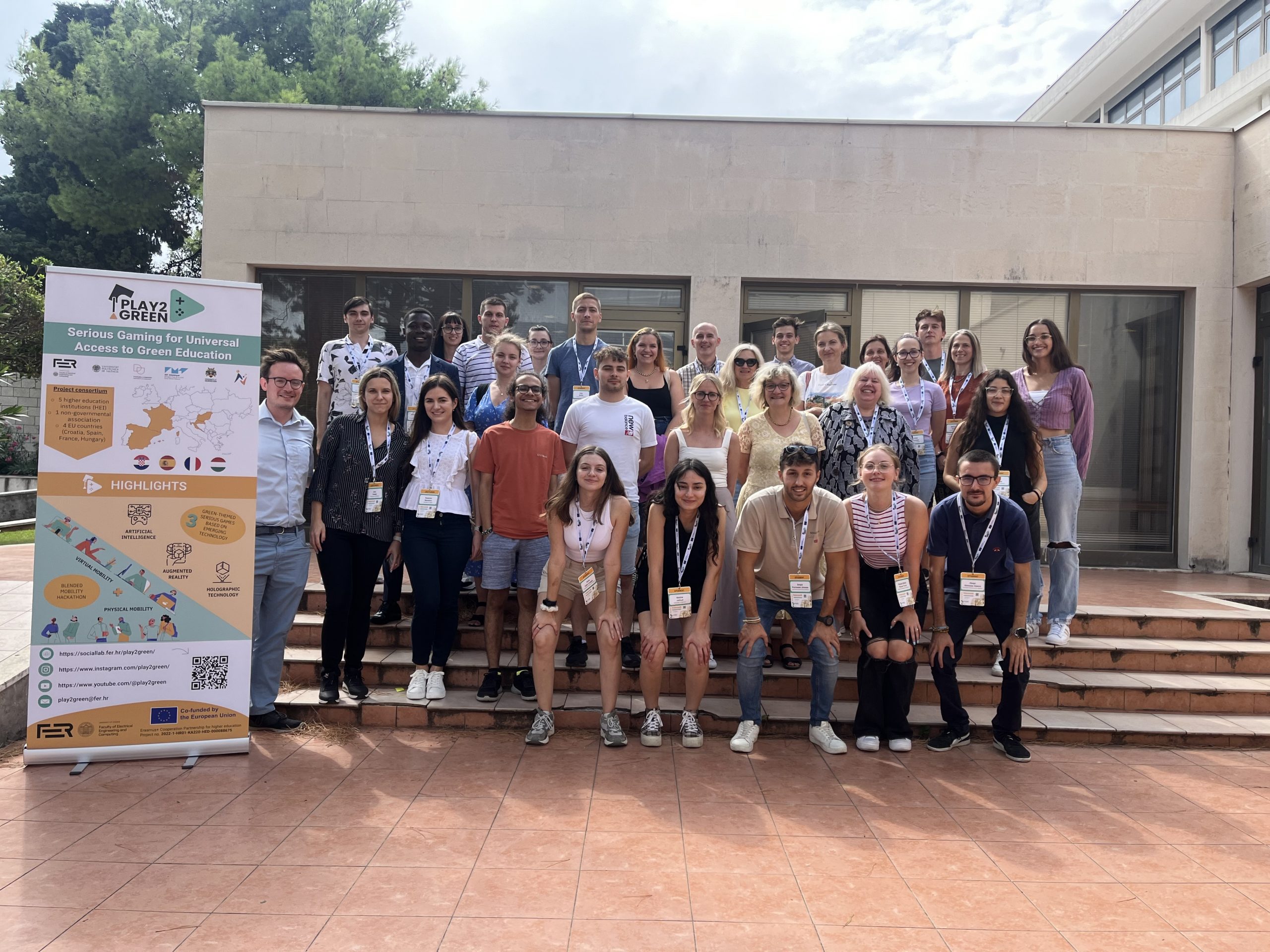30 October 2023
The physical part of the Play2Green Blended Hackathon took place in Dubrovnik from September 17-23, 2023. Students from four European countries (Hungary, Croatia, Spain and France) participated in all the planned activities with the aim of getting to know each other and completing serious game scenarios based on the selected green themes developed with their lecturers during the virtual part of the Blended Hackathon.
The hackathon officially started with a welcome session, where the project coordinator Jurica Babić and Katarina Mandarić welcomed all students and gave them important information about the activities that awaited them that week.
Afterwards, language and international culture experts from IMT Atlantique in France, Catherine Sable and Alison Gourves, gave a lecture on intercultural communication entitled “Communication in global inclusive teams.”
After the lectures and lunch each day, students had the opportunity to consult with their lecturers about the further development of their serious game scenarios and visual prototypes that they had to deliver at the end of the hackathon.
At the beginning of the second day of the hackathon, María Pérez Maldonado from the Asociación de Familias y Personas Sordas de Valencia (ASPAS Valencia) gave a presentation introducing the team behind the ASPAS association and the services it provides to users. She also pointed out accessibility features that are necessary in serious games for deaf people. After that, professor Željka Car from the Faculty of Electrical Engineering and Computing University of Zagreb gave a presentation on Universal Design for Learning (UD4L), which was rich in universal design examples from everyday life and was very helpful for the students to analyze their game scenarios in terms of meeting the UD4L criteria.
The second day of the hackathon was also marked by a multicultural dinner where students presented their home country with traditional food and drinks. We are sure that this contributed further to the students’ introduction.
On the third day of the hackathon, there was a 3D printing workshop led by the professors from the University of Debrecen, Marianna Zichar and Ildiko Papp. They presented interesting facts and applications of 3D printing, after which the students created their own 3D models, which were eventually printed using a 3D printer.
On the fourth day of the hackathon, after an interesting presentation by Ana Kešelj, teaching assistant at the University of Dubrovnik, in the field of holographic technologies, students were able to create their own holograms. Using a mobile device and a laptop, students brought objects in the holographic world to life.
On the last day of the hackathon, Eva Malichova from the University of Žilina presented the Erasmus+ project entitled “Inclusion through design thinking (eduIDT)” and invited the Play2Green students to next year’s eduIDT workshop in Valencia. After that, the presentation podium was given to students who gave investor presentations on the serious game they had worked on in teams during the Blended Hackathon.
After a series of very good presentations, the committee had to choose the teams with the best green scenario and Figma prototype. All the student groups performed their task with great dedication, making it difficult for the committee to make a decision. The team that won the award for the best Figma prototype was Ocean Rescue (lecturer Jurica Babić), while the team that won the award for the best green game scenario was Urban Garden (lecturers Katarina Mandarić, Marianna Zichar and Ildiko Papp).
Besides working hard on their green scenarios and visual prototypes during the Blended Hackathon, the students were very active in exploring Dubrovnik and on social media, i.e., Instagram and Tik-tok. That is why the committee decided to award one student with a Social Media Influencer Award. During the virtual phase of the hackathon, students also had to respond to 4 social challenges that were given to them, and the student with the most interesting answers was awarded the title of social challenge.
Judging by the evaluation results of the Play2Green Blended Hackathon, the event was extremely successful. Therefore, we would like to thank all the lecturers who prepared interesting lectures as well as the students who participated. We hope that they learned a lot about emerging technologies, serious games dealing with green topics and universal design for learning, so that they can share their new knowledge with their colleagues and acquaintances they meet in everyday life. 😊
